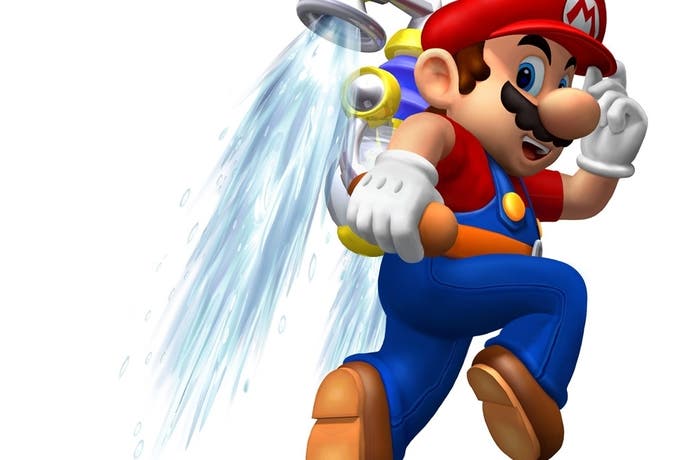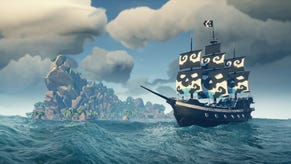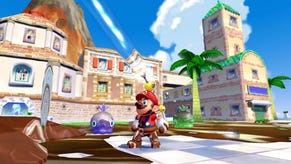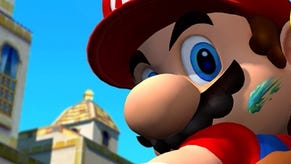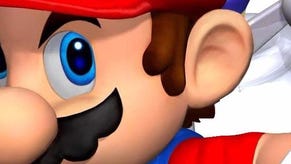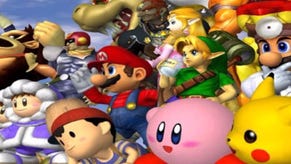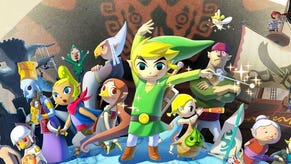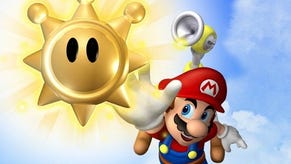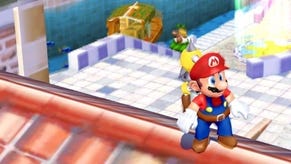Super Mario Sunshine retrospective
After the FLUDD.
11 years: that's how long it took Nintendo to top Super Mario 64 with Galaxy. For over a decade, this astonishing, genre-redefining game reigned supreme, towering above all its peers, an influence not only on every other 3D platformer but on every game with a three-dimensional world. How do you follow that?
In 2002 Nintendo's answer was to send Mario on holiday - and fair enough, the guy probably deserved a bit of a break. The result was one of the most divisive Mario games ever, one that was swiftly consigned to a footnote in Nintendo's rich history: I've read many interviews with Miyamoto, Yoshiaki Koizumi and other Nintendo execs over the years, and Sunshine barely warrants a mention when the subject turns to the publisher's most famous creation.
11 years: that's how long it's been since I first played Super Mario Sunshine for the first time. Times have changed, and Mario's moved on, but this curious anomaly still remains as dangerous and exciting as it seemed when I slotted that tiny disc into my GameCube and closed the lid with that gorgeous, satisfying clunk. Because, when it comes down to it, there's not really been anything quite like Sunshine since.
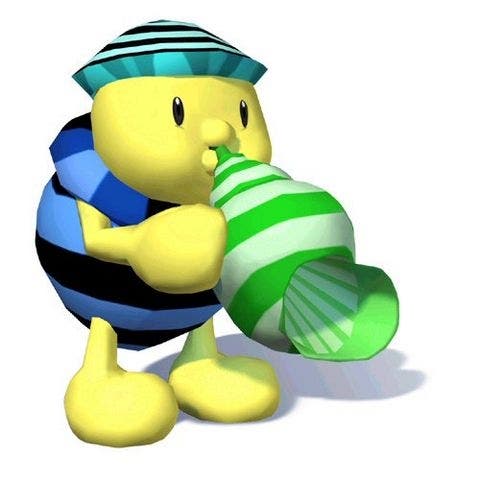
Sunshine is defined as much by what it gets wrong as what it gets right. It's the rare Mario game where you find yourself remembering its bad bits. Every Mario has duff moments or forgettable stages, but they're quickly cast aside in favour of listing their brilliant touches - Dire Dire Docks' music, Buoy Base, the end of Slimy Spring Galaxy - whereas parts of Sunshine are so awful they're impossible to forget.
The story is dire, its introduction interminable and embarrassing. The camera struggles terribly with the complex level geometry, most notably in the indoor stages, often resorting to representing Mario as a shadow behind scenery. The Shadow Mario chases are limp. Bowser. Piantas. Pachinko. Some of those can be explained - if not excused - by Nintendo rushing the final stages of development: it's since admitted it had to hurry Sunshine to market because of overwhelming demand and the lack of third-party titles to fill release gaps. And where have we heard that before?
But that would be to ignore all Sunshine gets right. For starters, those void levels. Of the few debts Galaxy owes to its predecessor, the most significant comes in the moments when Mario's stripped of water pack FLUDD - more on which shortly - and forced to tackle increasingly difficult obstacle courses with nothing more than his own prodigious gymnastic abilities. It's a neat twist, of course, on that classic Metroid trick of allowing you to get used to extra powers before cruelly snatching them away.
With Mario more skittish than he was in 64, a bundle of nervous energy wall-kicking up glass-fronted cases and sprinting over shifting sand platforms, there's a constant heart-in-mouth thrill to each of these secret stages, the impossibly jaunty music masking some of the steepest challenges Mario's ever faced - and all without the gravitational safety net he's often afforded in Galaxy. Each gap leads to nothing but an endless void, every hop, step and jump closer to the Shine sprite at the finish line upping the stakes. The platforming may not actually be that much tougher than before, but knowing that one slip is enough to send you spiralling into oblivion makes it all the more nerve-wracking.
Then there's FLUDD. Perhaps, if Professor E.Gadd's much-maligned water pack had remained a silent partner like Luigi's Poltergust-3000 it wouldn't be quite so hated, but its frequent interjections - through a voice that suggests someone's flicked Steven Hawking's voice box to the 'Bart Simpson' setting - proved an obstacle too large for many to overcome. Pity, as FLUDD is a big part of what makes Sunshine special, expanding Mario's moveset and acting as a convenient safety net for any misjudgements.
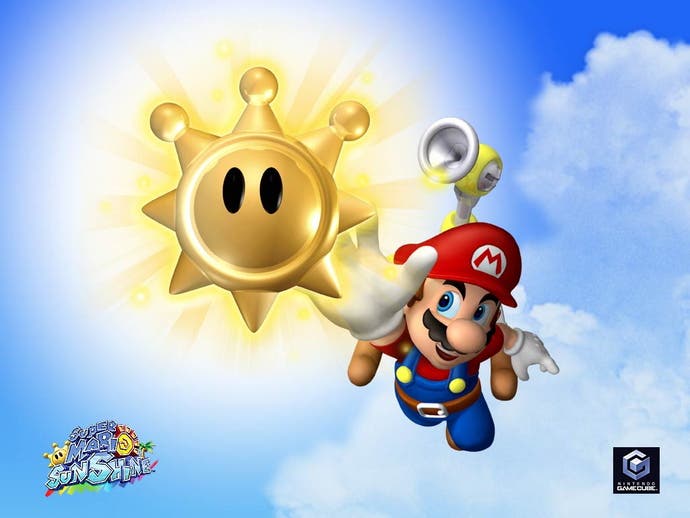
Think of it as variation on Smash Bros. rescue moves any time you're about to fall: the precarious traversal of Ricco Harbor's skinny scaffolds is made far less frustrating by FLUDD's presence, particularly as falling off in Sunshine is often a fate worse than death. In Galaxy, dying takes you back to the nearest checkpoint. Here, plummeting to earth often means several minutes of work to return from whence you fell.
FLUDD also helps Mario fit better into Sunshine's world. It's been said before, but Nintendo designs levels in such a way to feel that Mario is the final piece in the puzzle, the tiny cog that makes each stage function with clockwork precision. On Isle Delfino, it's different. Mario's taking a vacation, a break from the norm. These pseudo-realistic environments aren't perfectly tuned to his abilities; in short, this isn't his world, and he needs FLUDD to properly explore it, to speed his progress through areas too large to walk through, to hover over gaps too wide for a regular jump, to boost him to new heights even the most perfectly timed triple jump could never reach.
All of which contributes to Isle Delfino's uncommon sense of place. It's not a place that's defined by Mario's presence, but a fully functioning world of its own. There are abstract areas, constructions, scenarios and secrets that wouldn't make sense outside of a videogame, sure, but this is the least 'gamey' Mario environment and that's what makes it so interesting. Its levels are intricate and secret-packed - not all are created equal, but there's plenty to see in each one.
Pianta Village has a network of mesh barriers, platforms and bounce mushrooms literally beneath the surface. Gelato Beach is a sprawl of sand, sea, tightropes, giant mirrors and a huge bird egg. The gorgeous Noki Bay adds verticality with its spiralling structures and ancient mechanisms buried within wall and activated with a spray from FLUDD. Climb from base to peak top and you can see for miles: little wonder Nintendo included a button that pulled the camera over Mario's shoulder to let you take it all in.
While most Mario games give you a space and ask you to conquer it, Sunshine gives you a space and asks you to simply enjoy it, trusting its players to make their own fun. If Galaxy was a whistle-stop tour of the edges of the universe conducted by a busy tour guide, dragging you through space with an impatient tug, Delfino is a sightseeing trip taken at the player's own pace.
Those blue coins, an apparently cheap way of extending the game's longevity, become an invitation to explore, to head off the beaten track. They hide within shoals, nestle among reefs and are spat out by magical graffiti - spray one sign and the coin emerges elsewhere, asking you to locate it before it disappears. It's a Mario world you can learn and luxuriate in. Often, reaching the Shine sprite launches it to another part of the level, and that's not for nothing: you can simply take your time picking it up, with plenty of sights and sounds to draw your eye on the way back. It might seem shallow, but as with many videogames, there's an aesthetic joy to be found simply spending time in such an evocatively realised world. In this charming tropical hotspot, you can really feel that Super Mario sunshine.
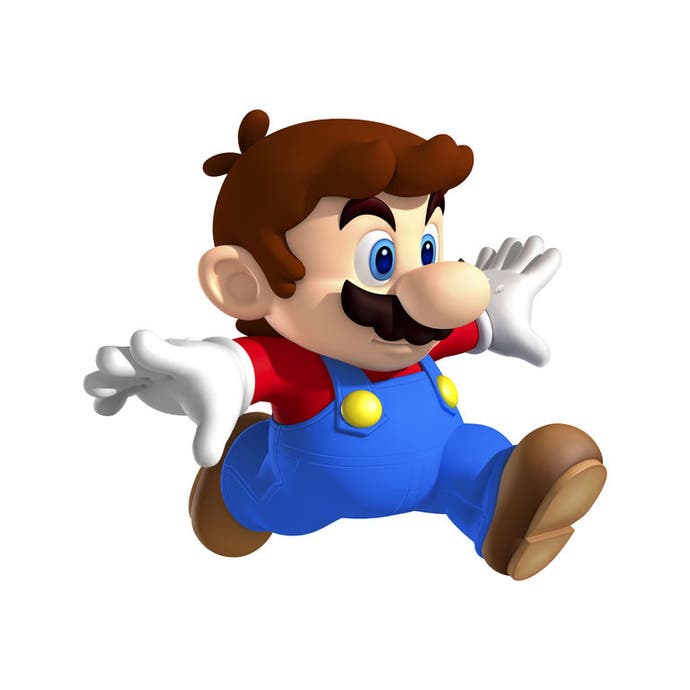
And in Delfino Plaza it has one of the all-time great videogame playgrounds. Here is a hub that's often more fun than the levels it hosts. With one of FLUDD's nozzles you can basically jetski across the best videogame water ever (with apologies to Wind Waker) at ferocious speeds; with another you can turn Super Mario into Superman, clearing tall building in a single bound. You can play games of impromptu basketball with bananas, or kick a conversion-slash-field goal by launching a durian fruit over the two parasols on the beach. It's a great place to simply mess around: Mario hasn't left the graffiti he's accused of spoiling Isle Delfino with, but Sunshine lets him leave his mark, and affords you a similar kind of self-expression with the way you negotiate the world.
As Nintendo edges ever closer to the safe, familiar abstractions of the Mushroom Kingdom, Sunshine proves an ever more fascinating experiment, a bracing counterpoint to the more linear Galaxy games. Take Galaxy's Sling Stars, for example: these see Mario spread his arms wide, allowing himself to be dragged to the next bit of business, whereas in Sunshine he's jet-propelled, but also - crucially - player-propelled. Galaxy gives you gobstopping sights from its own perspective; Sunshine allows you to take in the view any time you like. You're responsible for teasing out Sunshine's secrets through thorough investigation while Galaxy regularly nudges you in the right direction with visual clues that are constantly within your sightline. I'm not claiming Sunshine's approach is preferable, just different. It's another way.
Yet in light of the rather underwhelmed response to Super Mario 3D World's unveiling, I begin to wonder whether Galaxy's about-turn represents an evolutionary dead-end. I certainly don't think I'm the only one wondering what Nintendo could do with a Mario that learned from Sunshine's mistakes instead of walking away from them. There's an uncomfortable irony in the fact that just as we get the technology capable of doing an open-world platformer justice, Nintendo wants to distance itself further from that ideal. Until it makes the first-person Mario/Mirror's Edge hybrid I persistently daydream about, Sunshine remains the boldest experiment in the plumber's storied history. 11 years: perhaps now it's time for a reappraisal.
